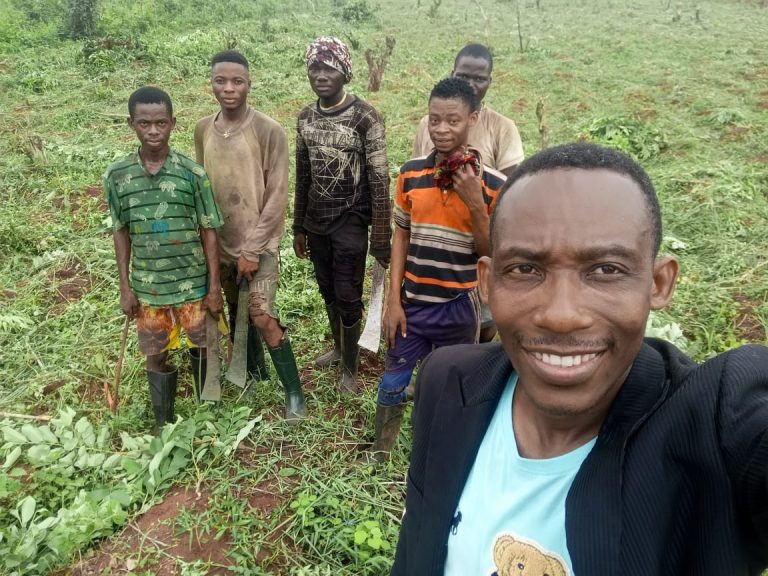This September, leaders from over 20 African countries will convene for Africa Climate Summit in Nairobi, Kenya.
The summit will delve into critical discussions surrounding climate change and its profound implications for Africa. An essential focal point of these deliberations will be the imperative to underscore the role of African Small and Medium Enterprises (SMEs) and their vulnerability to the effects of climate change.
AgriSMEs play a significant role in the African economy, contributing to job creation, income generation, and overall economic growth. However, these enterprises often face specific challenges and risks related to climate change, such as disruptions in their supply chains, increased operational costs, and limited access to resources and financing.
The experience of Emmanuel Gift Mulangeni from Malawi is a compelling example highlighting the devastating effects of climate change. When persistent storms and heavy rain struck for six days, his chicken coop was destroyed, resulting in the unfortunate loss of a significant portion of his laying hens.

Trapped by the severe weather conditions, he could not save his valuable chickens, leading to a financial loss of over 30% of his profit and the destruction of his chicken coop, which held considerable value.
Similarly, the experience of Opeyemi Emmanuel Durodola, a yam farmer from Nigeria, underscores the intricate challenges introduced by climate change in the agricultural sector. Erratic rainfall patterns disrupted his planting schedules, resulting in his yam tubers rotting in waterlogged soil or experiencing inadequate sprouting during dry spells.
READ ALSO: President Biden Signs Major Climate Change, Healthcare Law
The increased incidence of pest and disease outbreaks further compounded his struggles as an agriSME.
Confronted with these dire consequences of climate change, various organizations, including African Food Changemakers, have launched initiatives like “The Building Resilience Against Climate and Environmental Shocks.”
This program aims to support entrepreneurs operating within the agricultural landscape by helping them grasp the profound impacts of climate change on their ventures.
The Building Resilience Against Climate and Environmental Shocks (BRACE) program is a six-week capacity development initiative. Tailored to empower African agriSMEs within the agribusiness sector, it aims to enhance their awareness of how climate change affects their operations.
Additionally, BRACE facilitates the development of strategies to adapt to and mitigate these impacts by adopting climate-smart practices. Harnessing the potential of Information and Communication Technology (ICT), data analytics, and innovation, BRACE seeks to empower agriSMEs with training, technical support, and expertise to implement sustainable solutions and scale their agribusinesses effectively.
The response to the BRACE program has been overwhelming, with over 1,300 applications received from across Africa. From these, more than 1,000 participants have been admitted into the program.

With its conclusion scheduled for September, the program has already garnered much feedback and testimonies from participants attesting to the transformative impact on their businesses. Presented below are some of the beneficiaries’ narratives detailing the profound effects of the program on their enterprises.
“The BRACE program has helped me to lift my skills in farming. My biggest challenge has been flooding, and I believe that with the acquired knowledge, I can make a successful production,” James Mukiibi from Uganda.
According to Karo Dawene from Nigeria: “I have learned so much. Our students in the universities here will envy the level of knowledge imparted within a few weeks. As much as my resources allow, I plan to adopt what I have learned and share the knowledge gained”
READ ALSO: US Senate Passes Health Care, Tax And Climate Bill
Also from Nigeria, Catherine Nadabo affirmed that “This program and teachings have been enlarging my understanding of the recent impacts of climate on Livestock Farming as I am armed to help my clients get more informed.
“I wouldn’t have afforded it in my present state, but you have given me this excellent transformation tool. Thank you.”
As we look towards the Africa Climate Summit which focuses on acknowledging the role of African SMEs, particularly those in the agribusiness sector, in climate change is paramount. Initiatives such as the BRACE program are crucial steps toward equipping these enterprises with the knowledge and tools needed to confront the challenges of a changing climate.
By fostering resilience, innovation, and sustainable practices, these efforts hold the potential to safeguard the livelihoods of countless entrepreneurs and contribute to the overall well-being and prosperity of the continent.
– By Odunayo Omotosho and GloryPraise Bassey




